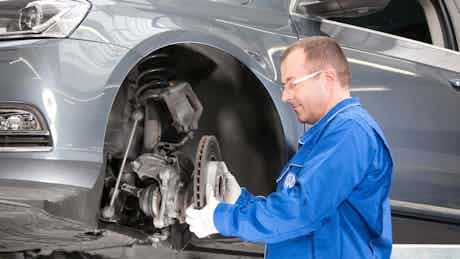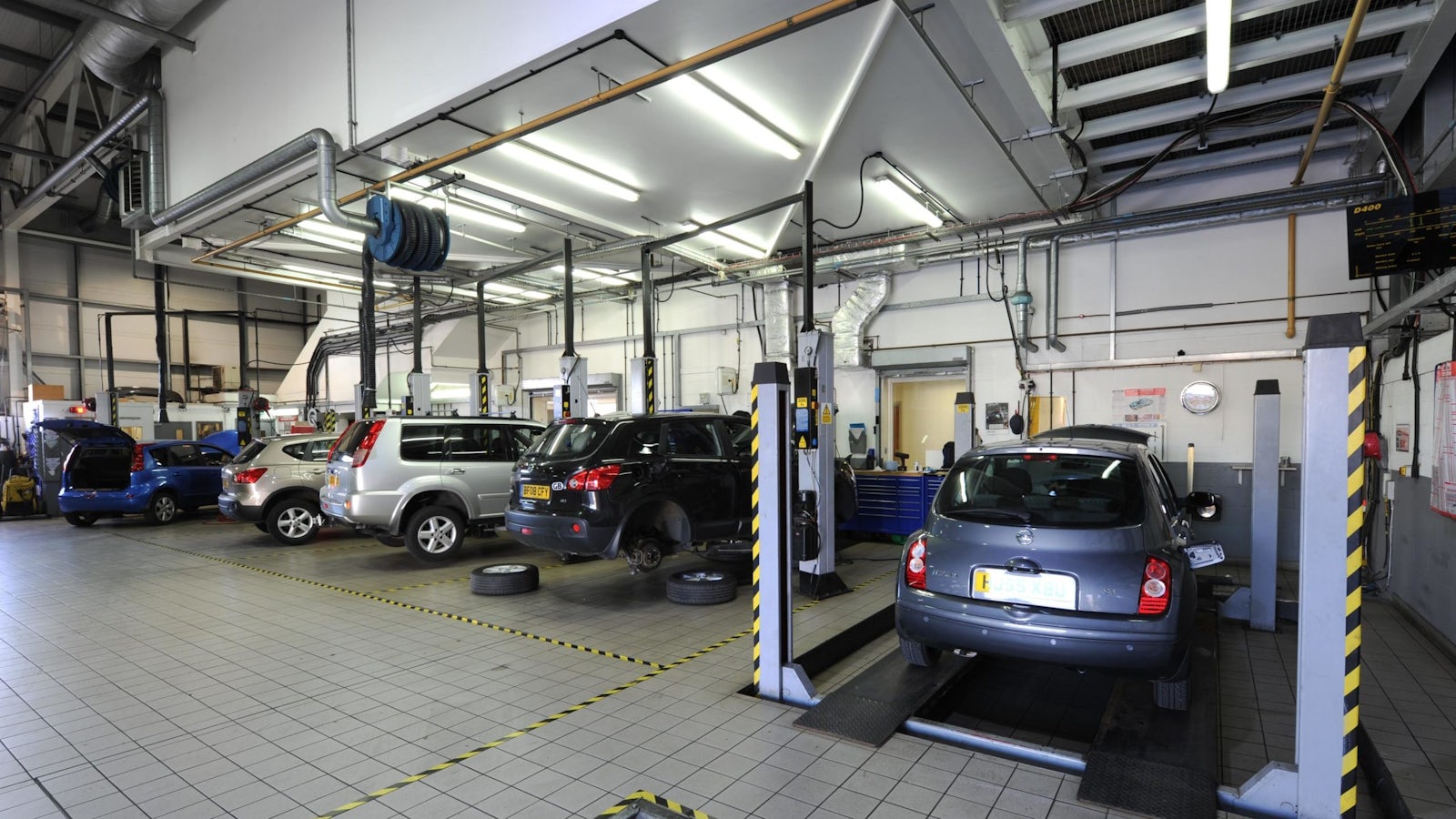What is included in a car service?
March 06, 2023 by carwow staff

We detail the ins and outs of what a car service comprises
Being the sophisticated contraptions that they are, and existing as they do in the unprotected elements, travelling at speed while constantly battling with the laws of physics, cars have a hard life.
As such, they need periodic maintenance to ensure they are running in the best possible state, while many components fitted to cars are consumables, which are used up gradually as time passes and the car is driven.
A car service will, if conducted correctly and at the right moment, prolong the life of your vehicle, while ensuring it is as safe, smooth and efficient as possible; you’ll also help preserve its value, as buyers of used cars rightly prize good service histories.
What does a car service include?
Depending on the car in question, a car service can involve as little as a general inspection, or it can require removing the engine and replacing hard-to-access components.
Just to give you an idea, a simple service on a Ford Fiesta might involve the car having an oil and oil filter change plus a once over for any defects or worn parts, and cost you as little as £100. At the other end of the scale, the first service on a Bugatti Chiron reportedly costs £20,000 and requires, amongst other things, 16 drainage plugs being removed and replaced.

Clearly the Chiron is an extreme example that bears no relevance for most of us, but it serves as an example of just how varied servicing costs and requirements can be. Manufacturers will set service regimes that are specific to the model of car in question. Some cars, for example, have automatic transmission fluid that is designed to last the life of the car (anecdotally, though, it’s actually a good idea to change this periodically). A car with a manual gearbox clearly won’t have any automatic transmission fluid to change, but it will need fresh gearbox oil from time to time.
In general terms, though, there are three levels of standard service on a car, which we’ll now detail in order of comprehensiveness.
Interim car service
An interim service requires the least amount of work being done to a car. An interim service will typically involve an oil change, plus a new oil filter being fitted, while the garage technician should also inspect the car’s drive belts, brakes and suspension for any issues, plus topping up fluids like the coolant and power-steering fluid, if required.
Interim services are generally aimed at high-mileage drivers who might be doing 20,000 miles a year, with an interim service recommended every six months.
Full car service
A full service is, as you might imagine, more comprehensive than an interim service, so in addition to the oil and filter change, it will typically include a more thorough inspection of the car, perhaps with components like the wheel bearings being assessed for wear. The air filter may also be changed, the air-conditioning and battery might be checked, and the brakes could be comprehensively tested.
Major car service
The most thorough level of service is the major one. During this, all manner of things could be replaced including the air-conditioning gas, the brake and power steering fluid, the cabin filter and the spark plugs, in addition the the oil and filter change included in an interim check.
Other types of car service
Those are the traditional service types most cars can be put through, though they are often known by different names. The ‘full’ service could actually be called a ‘minor’ or ‘intermediate’ by your garage.
Aside from differing nomenclature, some cars do not follow that strict pattern.
Variable servicing, for example (BMW is best-known for using this model), sees a car’s on-board diagnostics system monitor the quality of various fluids and the condition of various components, with the car’s computer telling the service centre what needs changing or replacing. This tends to be affected by how and how far the car is driven.
Some high-performance cars also have a ‘running in’ service, which might require the car to be brought in for an oil change and general checkup after as little as 1,000 miles.
Then there are things like the cambelt service, which tends to be done every five years when the car is in for a full service and sees the car’s cambelt replaced; typically this a fair amount to the total bill (cambelt changes vary from car to car, but an extra £400 wouldn’t be wildly off the mark – although some cars have cam chains rather than belts, so don’t need this).
Then there’s the question of electric car servicing. EVs clearly don’t have oil that needs to be changed or cambelts that need replacing, but they do have brakes that will need to be checked and replaced as they wear, while electric motors and battery packs tend to get health checks to ensure they’re running as intended. EVs also have things like cabin filters that need changing periodically, plus suspension and steering linkages should be inspected regularly, and the battery coolant should be checked.

How long does a car service take?
A simple oil and filter service might take as little as 45 minutes, but a more major service can take several hours, particularly if the cambelt needs to be changed, for example.
Regardless of what needs doing, the garage may ask you to drop the car off in the morning and collect it at the end of the day, as it can be tricky to guarantee work will take place at a specific time due to the manner in which service centres can work – although if it’s a minor service you may be able to wait in reception while the car is worked on.
How often should I have my car serviced?
Whenever the manufacturer recommends it. Most cars come with a service interval of, say, one year or 10,000 miles, whichever comes first.
Some cars have longer service intervals, perhaps as long as 18 or 24 months, but there is certainly no harm in getting the car serviced every year, even if it has longer intervals than that.
Cars with variable service intervals may tell you when they need maintenance based on the condition of the car’s components, rather than a set time – although it is still a wise idea to have the car inspected regularly regardless, as not every part can be electronically monitored, and a human eye and hand will spot things a computer cannot.
How much does a car service cost?
As mentioned earlier, servicing costs can vary wildly based on the car (a big SUV will almost always be pricier to service than a city car) and the level of work it requires. There are also significant differences in price based on geographical factors, while an independent garage will often be cheaper than a main dealer (although some main dealers offer competitive pricing for services).
Do also note that as a car service can include lots of inspection work in addition to things being renewed, the mechanic may spot that you need new brake discs all round, or your clutch is on the way out, for example, bringing with it additional expense.
As a very, very, very rough guide, though, think somewhere in the region of £130 for an interim service, perhaps £250 for a major service, and £450 for a full service.
Change cars online with carwow
Looking for an easy way to change your car? Then carwow is the place to go. You can sell your car online for a great price, and get the best deals on a new one. All through our network of trusted dealers and all from the comfort of your home. Tap the button below to get started today.















